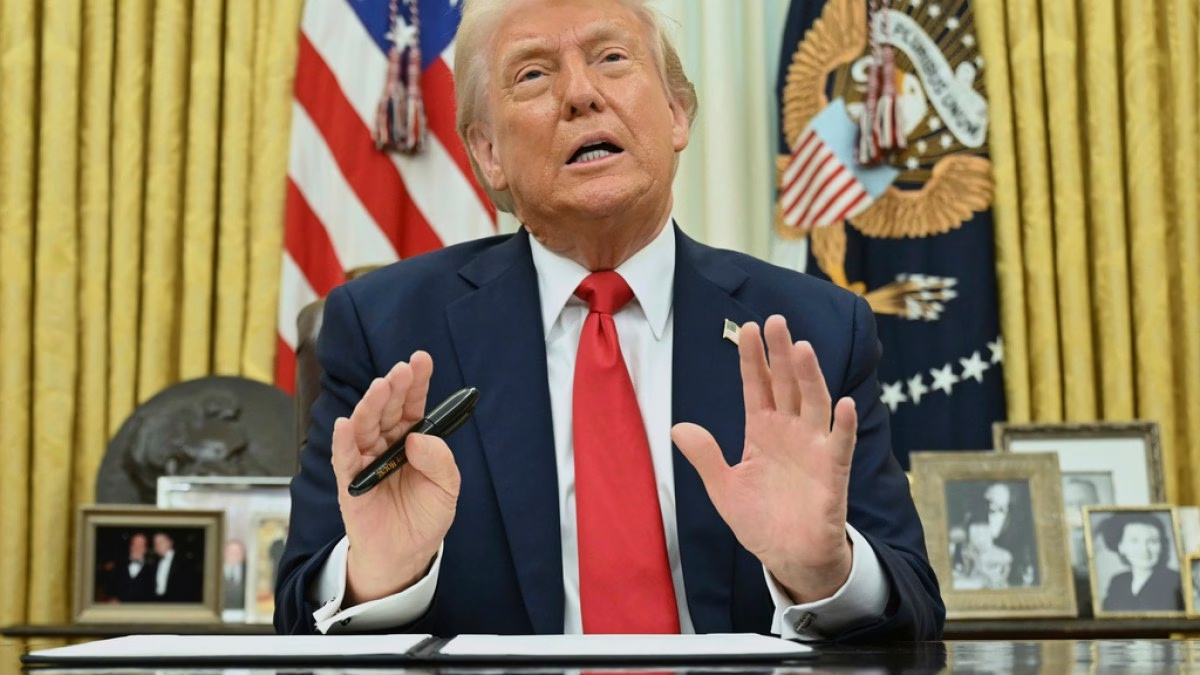President Donald Trump’s announcement of tariffs on most trading partners, including several African nations, is expected to affect businesses and individuals across the continent, potentially pushing more producers to trade with China, according to experts.
Trump’s “Liberation Day” declaration on Wednesday caused turmoil in the markets, as the US embraced the most protectionist policies since the 1930s, undermining a global trade system it played a significant role in developing.
The new tariffs, which include a universal 10 percent duty on all imports to the US and additional penalties for “worst offender” countries such as Nigeria and South Africa, are likely to overturn the African Growth and Opportunity Act (AGOA) agreement, an arrangement that has facilitated duty-free exports from African countries to the US for decades and supported tens of thousands of jobs, analysts argue.
Established in 2000, the AGOA has been a vital platform for African countries to export textiles, steel, and agricultural products to the US. However, it now faces jeopardy due to Trump’s trade policies, which could result in renewable energy being more challenging to secure.
Lesotho, a small Southern African nation with one of the world’s highest rates of HIV, faces the highest tariffs at 50 percent. Other countries such as Madagascar (47 percent), Mauritius (40 percent), Botswana (37 percent), and Angola (32 percent) are also severely impacted. South Africa, in addition to the new tariffs, is also affected by a separate 25-percent tariff on foreign-made cars which became effective this week.
The tariffs selected for other countries are listed, with Algeria and Cameroon facing a 30 percent and 12 percent increase, respectively, among others.
South African government officials have responded to the tariffs, labeling them as “punitive” and expressing their intent to seek compensation from Washington.
These tariffs could weaken the AGOA framework, which is set for renewal this year. As the program expires in September, it remains uncertain whether the Trump administration will extend it again. These changes could significantly impact African economies reliant on US trade and may force those nations to explore alternative trade partners, like China for instance, to avoid the penalties imposed by the US tariffs.
Several countries, including South Africa and Nigeria, who are among the top US trading partners on the continent, are expected to experience substantial effects. South Africa primarily exports precious stones, steel products, and cars to the US, while Nigeria exports crude oil and other petroleum products. Ghana, Ethiopia, and Kenya also have a significant amount of trade with the US every year under AGOA. However, these countries face the universal 10 percent tariffs despite not being listed as “offenders.”
The imposition of these tariffs will likely reduce the competitiveness of African exports, threatening revenue and economic stability. The prospect of higher living costs and job losses loom over the populace, particularly impacting heavily export-reliant sectors like agriculture and mineral extraction.
While South Africa may initially attempt to negotiate with Trump for more favorable terms, African nations are likely to pursue alternative trade partners like China in the long run. This shift is expected as China has already been surpassing the US as Africa’s leading trading partner over the past two decades and remains a major bilateral lender to the continent. China’s imports from Africa include primary goods like crude oil and agricultural produce, while it exports finished products, such as electronics, back to the continent.
Source: https://www.aljazeera.com/news/2025/4/4/have-trumps-tariffs-killed-us-africa-preferential-trade?traffic_source=rss







